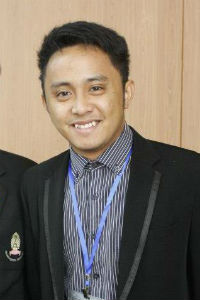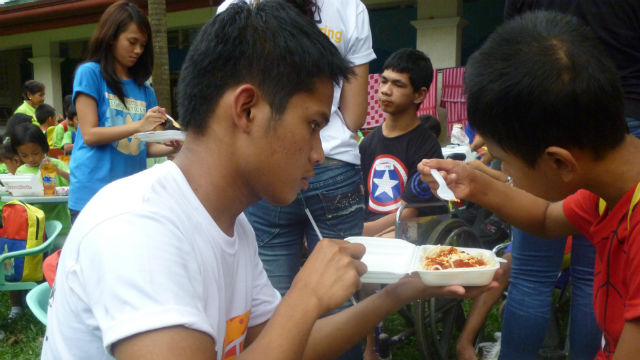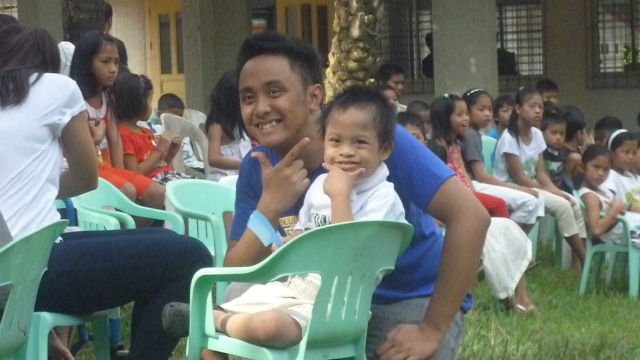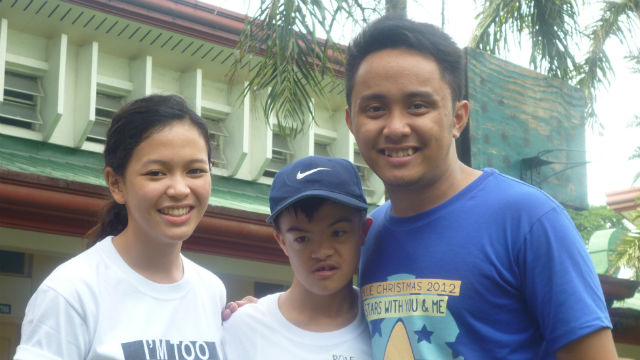SUMMARY
This is AI generated summarization, which may have errors. For context, always refer to the full article.

Last December 2012, I had the privilege of staying with kids with special needs for three days. This was part of our university’s senior immersion requirement under the Theology of Catholic Social Vision class, where we tackle social issues in the society and the role that spirituality plays in it.
My group mates and I were assigned to Cottolengo Filipino, a private non-stock, non-profit religious and non-government organization that caters to poor, abandoned, neglected and surrendered people with disabilities. The institution is owned and managed by the Sons of Divine Providence congregation and is accredited by the Department of Social Welfare and Development (DSWD).
I had been facing some personal issues that time and I felt I would be too distracted to even interact with the kids. But as I learned during my stay, however, one can never be distracted when with the differently-abled.
Initial shock
Some of the kids can’t walk and those who can had to be led around and guided at all times. It was difficult to communicate with most of them and some even had the tendency to hurt their guides.
I was faced with fear – fear that my patience would run out, fear that I’ll get too irritated, fear that my immersion experience will not be as good as my other batch mates’. After spending a few minutes in the institution, I was already running around the grounds chasing my kid.
Despite the difficulties our group endured for the first day, there was a feeling of joy and fulfillment to be with the kids. I guess we saw in them hope and happiness for the simplest things that they have. I realized after the first day that the kids would help me more than I could help them. I knew that their effect on my life would be greater than my three days assistance to them.
More than the bonding and the memories, I realized that I would learn valuable lessons from my experience with them.

Against the stigma
A lot of people have stigmas against kids with special needs. Some think these children are incapable of feeling emotions while others see them as incomplete human beings.
My experience with the kids taught me differently. They are humans too. They are capable of loving and hurting as we “normal” people are.
Because of my experience with them, I realized that love transcends everything. It might not always be communicated well, but love is something that all humans can feel. Perhaps, it is possible to love regardless of distance and differences – that it is possible to love across social and physical limitations.
During my stay, I took care of Gilbert and Michael. Gilbert is a 10-year-old with Apert syndrome while Michael is a 4-year-old with Down syndrome. Both were surrendered by their parents due to financial incapacity.
In spite of the difficulty of looking after them, I felt that we shared a connection. I felt their affection even though they expressed it differently. I hope they felt the love I offered them.

Life lessons from the kids
One thing I learned during my interaction with the kids was gratitude.
We have a tendency to take for granted even the smallest things that we can do. Have we ever been thankful for a morning walk, a conversation or a meal with our families? Have we ever appreciated the fact that we can eat, sing and dance without someone guiding us?
Not all the time. Instead, we sulk at the smallest things like a failed exam, a missed meal or a disappointment. We overlook the fact that we can do so much without being dependent. During my stay with the kids, I learned to be more grateful and appreciative of what I have.
I guess my experience can be summed up with what our formator said before we left Cottolengo. He said that maybe it was not just us immersing with the kids. They also immersed with us.
Perhaps, we need to see reality through a bigger lens. Maybe we are not always the center and our perspectives are not always the right ones.
There’s a reason why they are called differently-abled. They do things differently from us but they are no less valuable than us. The greatest thing we share is our common humanity despite our differences and limitations. This was the common sentiment from our group when we had our sharing. All of us were suddenly ashamed of our petty problems and concerns. Most of us were teary-eyed when we left the instituton.

Maybe the reason these kids are called special is because they have the capability to touch and teach people important life lessons. During my interaction with the kids, It felt like I was their student more than I was their teacher and guide.
To the kids of Cottolengo Filipino, especially Michael and Gilbert, thank you for giving me the opportunity to learn from you. The privilege was really mine. – Rappler.com
For those interested to know more about Cottolengo Filipino you may visit their website at: http://cottolengofilipino.org/
Add a comment
How does this make you feel?
There are no comments yet. Add your comment to start the conversation.